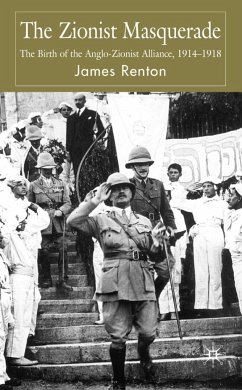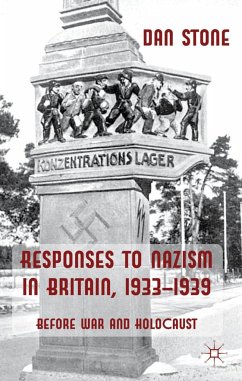
Western Jewry and the Zionist Project, 1914 1933

PAYBACK Punkte
52 °P sammeln!
This is the first study of the Zionist movement in Germany, Britain, and the United States which recognizes "Western Zionism" as a distinctive force. From the First World War until the rise of Hitler, the Zionist movement encouraged Jews to celebrate aspects of a reborn Jewish nationality and sovereignty in Palestine, while at the same time acknowledging that their members would mostly "stay put" and strive toward acculturation in their current homelands. The growth of a Zionist consciousness among Western Jews is juxtaposed to the problematic nurturing of the movement's institutions, as Zioni...
This is the first study of the Zionist movement in Germany, Britain, and the United States which recognizes "Western Zionism" as a distinctive force. From the First World War until the rise of Hitler, the Zionist movement encouraged Jews to celebrate aspects of a reborn Jewish nationality and sovereignty in Palestine, while at the same time acknowledging that their members would mostly "stay put" and strive toward acculturation in their current homelands. The growth of a Zionist consciousness among Western Jews is juxtaposed to the problematic nurturing of the movement's institutions, as Zionism was consumed increasingly by fundraising. In the 1930s Zionism evinced questionable administrative motives and talents, which unsettled even its stalwarts such as Louis Brandeis and Henrietta Szold. While Zionist images assumed a progressively greater share of secular Jewish identity, and Zionism became normalized in the social landscape of Western Jewry, the organization faltered in translating its popularity into a means of "saving the Jews" and "building up" the national home in Palestine. This was the period in which the Jewish masses were approaching their most serious and ultimately fatal challenge.














